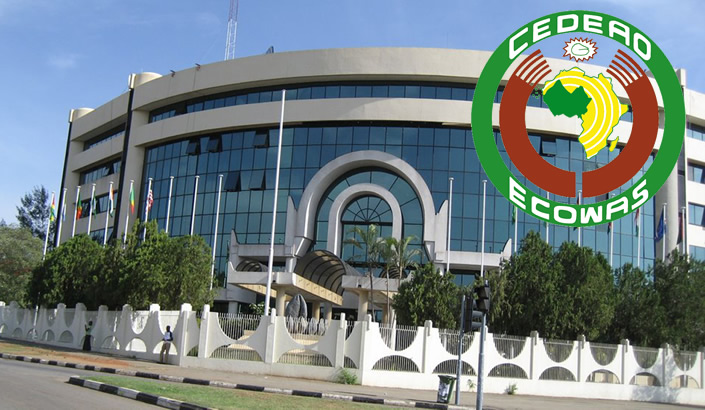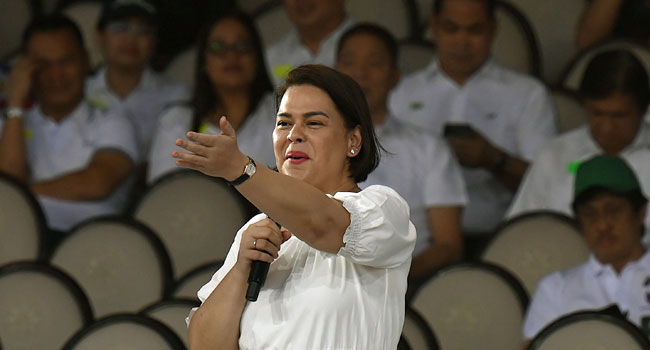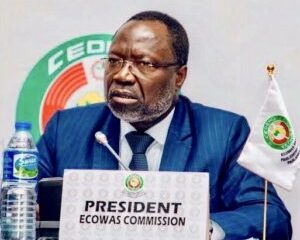Headlines
Mali’s Five-Year Transition Proposal is Rejected by ECOWAS

By Derrick Bangura.
Dr. Goodluck Jonathan, former President of Nigeria and Chair of the Economic Community of West African States (ECOWAS) Council of the Wise (CoW), has stated that the five-year transition time requested by Mali’s military administration is too long.
Military governments had become an aberration in the sub-region, according to Jonathan, who is also the ECOWAS Chief Mediator on the Mali situation.
He addressed at a press conference in Lagos on Tuesday, following a two-day strategic retreat of the ECOWAS Council of the Wise.
Jonathan stressed that the proposal for a five-year transition period for the military regime by the Malian parliament was unacceptable because the time was not only too long, but also untenable.
The president stated, “If the parliament approves that, I don’t believe ECOWAS will accept it. I cannot say authoritatively because I am not the chair of the Authority of ECOWAS, but because I am the mediator, we feel that five years is too long for a transitional government. In 2012, when we had a similar experience in Mali, it was one and a half years within which elections were done, when the former speaker of parliament became the interim president.
“And within one and a half years elections were done. Niger, of course, that was 2011, when I was still head of state, when the military intervention happened, it was within 12 months, elections were conducted. We had a similar case in Burkina Faso within that period; within 12 months elections were conducted.
“We believe that ECOWAS does not want any coup d’état in the sub-region anyway. But assuming it happens, we believe that the period they will hold office should not be so long.
“In this February, they have spent about one and a half years already. Adding another five years is six and a half years. ECOWAS Authority of Heads of State will discuss it, but I believe ECOWAS may not accept it.
“We are going to negotiate it further with them and see that they reduce it because five years plus one and a half years, that is six and a half years, it is almost two tenures of an elected government. And I think for a transitional government it does not really add up.”
Jonathan said as part of a strategy to quicken the development of the region, ECOWAS was considering re-capitalisation of its regional bank.
He stated, “We also looked at some other things, like we have recommended that the ECOWAS Bank of Investment and Development should be capitalised properly and restructured so that it will play a key role in terms of assisting people in the private sector to build small and medium scale industries across the sub-region.
“That will increase the opportunity of young people getting loans to develop businesses and also create jobs for others. So we looked at other things, but basically none of these will bring immediate answer to a situation in a place like Mali. Already, the military are there and they want to stay for another five years. So that should be through negotiation, which the council of the wise will work with the commission, we will work with the Authority of Heads of State and Government to get that done.”
He added, “So when you now raise the issue of Mali parliament that have approved the five-year term transition, the parliament of Mali is a part of the government of Mali that is in operation. They are not elected members of the parliament and that is why ECOWAS parliament won’t even accept them to meet with the ECOWAS parliament. Because for you to be a member of the ECOWAS parliament you must be elected by your people.”
He said even though the CoW was constituted by the ECOWAS Commission as an important preventive, diplomatic, and mediation organ of the ECOWAS Peace and Security Architecture, it was not set up to immediately intervene in the security challenges facing the region.
Jonathan said, “I want the people to know that the purpose of the council of the wise is not to immediately intervene in the security challenges we have. We have three countries being run by the military, which is an aberration in the sub-region.
As part of attempts to ensure that young people were no longer easily recruited into bad agendas, Jonathan said his council suggested for the region free and compulsory education for all children from primary to the secondary school level.
According to Jonathan, the subject of bad leaders whose acts and inactions cause crises in their countries is also being investigated.
Headlines
Noble Ladies Champion Women’s Financial Independence at Grand Inauguration in Abuja

Women from diverse backgrounds across Nigeria and beyond gathered at the Art and Culture Auditorium, Abuja, for the inauguration and convention of the Noble Ladies Association. The event, led by the association’s Founder and “visionary and polished Queen Mother,” Mrs. Margaret Chigozie Mkpuma, was a colourful display of feminine elegance, empowerment, and ambition.
The highly anticipated gathering, attended by over 700 members and counting, reflected the association’s mission to help women realise their potential while shifting mindsets away from dependency and over-glamorization of the ‘white collar job.’ According to the group, progress can be better achieved through innovation and creativity. “When a woman is able to earn and blossom on her own she has no reason to look at herself as a second fiddle,” the association stated.
One of the association’s standout initiatives is its women-only investment platform, which currently offers a minimum entry of ₦100,000 with a return of ₦130,000 over 30 days—an interest rate of 30 percent. Some members invest as much as ₦1 million, enjoying the same return rate. Mrs. Mkpuma explained that the scheme focuses on women because “women bear the greater brunt of poverty” and the platform seeks “to offer equity in the absence of economic equality.”
Education is also central to the Noble Ladies’ mission, regardless of age. Their mantra, “start again from where you stopped,” encourages women to return to school or upgrade their skills at any stage in life. The association believes that financial stability is vital in protecting women from cultural practices that dispossess widows of their late husbands’ assets, while also enabling them to raise morally and socially grounded families.
Founded on the vision of enhancing women’s skills and achieving financial stability, the association rests on a value system that discourages pity and promotes purpose. “You have a purpose and you build on that purpose to achieve great potentials and emancipation,” Mrs. Mkpuma said.
A criminologist by training and entrepreneur by practice, she cautions against idleness while waiting for formal employment. “There are billions in the informal and non-formal sectors waiting to be made,” she said, rejecting the “new normal of begging” and urging people to “be more introspective to find their purpose in life and hold on to it.”
Mrs. Mkpuma’s management style keeps members actively engaged, focusing on vocational skills and training to prepare them for competitive markets. She is exploring “innovative integration of uncommon technologies” and is already in talks with international franchises to invest in Nigeria, with Noble Ladies as first beneficiaries.
The association’s core values include mutual respect, innovation, forward-thinking, equal opportunity, and financial emancipation. With plans underway to establish a secretariat in the heart of Abuja, the group aims to expand its impact.
The event drew high-profile guests, including former Inspector General of Police, Mike Okiro, and a host of VIPs, marking a significant milestone in the association’s drive for women’s empowerment.
Headlines
NEPZA, FCT agree to create world-class FTZ environment

The Nigeria Export Processing Zones Authority (NEPZA) has stepped in to resolve the dispute between the Federal Capital Territory Administration and the Abuja Technology Village (ATV), a licensed Free Trade Zone, over the potential revocation of the zone’s land title.
Dr. Olufemi Ogunyemi, the Managing Director of NEPZA, urged ATV operators and investors to withdraw the lawsuit filed against the FCT administration immediately to facilitate a roundtable negotiation.
Dr. Ogunyemi delivered the charge during a courtesy visit to the Minister of the Federal Capital Territory, Barrister Nyesom Wike, on Thursday in Abuja.
You will recall that the ATV operators responded to the revocation notice issued by the FCT administration with a lawsuit.
Dr. Ogunyemi stated that the continued support for the growth of the Free Trade Zones Scheme would benefit the nation’s economy and the FCT’s development, emphasizing that the FCT administration recognized the scheme’s potential to accelerate industrialisation.
Dr. Ogunyemi, also the Chief Executive Officer of NEPZA, expressed his delight at the steps taken by the FCT minister to expand the economic frontier of the FCT through the proposed Abuja City Walk (ACW) project.
Dr. Ogunyemi further explained that the Authority was preparing to assess all the 63 licensed Free Trade Zones across the country with the view to vetting their functionality and contributions to the nation’s Foreign Direct Investment and export drives.
“I have come to discuss with His Excellency, the Minister of the Federal Capital Territory on the importance of supporting the ATV to succeed while also promoting the development of the Abuja City Walk project. We must work together to achieve this for the good of our nation,” he said.
On his part, the FCT Minister reiterated his unflinching determination to work towards President Bola Ahmed Tinubu’s Renewed Hope Agenda by bringing FDI to the FCT.
“We must fulfil Mr. President’s promises regarding industrialization, trade, and investment. In this context, the FCT will collaborate with NEPZA to review the future of ATV, a zone that was sponsored and supported by the FCT administration,” Wike said.
Barrister Wike also said that efforts were underway to fast-track the industrialisation process of the territory with the construction of the Abuja City Walk.
The minister further said the Abuja City Walk project was planned to cover over 200 hectares in the Abuja Technology Village corridor along Airport Road.
According to him, the business ecosystem aimed to create a lively, mixed-use urban center with residential, commercial, retail, hospitality, medical, and institutional facilities.
He added that the ACW would turn out to be a high-definition and world-class project that would give this administration’s Renewed Hope Agenda true meaning in the North-Central Region of the country.
Barrister Wike also indicated his continued pursuit of land and property owners who failed to fulfil their obligations to the FCT in his determination to develop the territory.
Headlines
Benue IDPs block highway, demand return to ancestral homes

Vehicular movement along the Yelwata axis of the Benue–Nasarawa highway was brought to a standstill on Wednesday as Internally Displaced Persons, IDPs, staged a protest, demanding immediate return to their ancestral homes.
The protesters, believed to be victims of persistent attacks by suspected herdsmen, blocked both lanes of the busy highway for several hours, chanting “We want to go back home”.
The protest caused disruption, leaving hundreds of motorists and passengers stranded.
Eyewitnesses said the displaced persons, many of whom have spent years in overcrowded IDP camps, are expressing deep frustration over the government’s delay in restoring security to their communities.
“We have suffered enough. We want to return to our homes and farms,” one of the protesters told reporters at the scene.
Security personnel were reportedly deployed to monitor the situation and prevent any escalation, though tensions remained high as of press time.
Efforts to reach the Benue State Emergency Management Agency, SEMA, and other relevant authorities for comment were unsuccessful.
-

 Headlines3 years ago
Headlines3 years agoFacebook, Instagram Temporarily Allow Posts on Ukraine War Calling for Violence Against Invading Russians or Putin’s Death
-

 Headlines3 years ago
Headlines3 years agoNigeria, Other West African Countries Facing Worst Food Crisis in 10 Years, Aid Groups Say
-

 Foreign3 years ago
Foreign3 years agoNew York Consulate installs machines for 10-year passport
-

 News12 months ago
News12 months agoZero Trust Architecture in a Remote World: Securing the New Normal
-

 Entertainment3 years ago
Entertainment3 years agoPhyna emerges winner of Big Brother Naija Season 7
-

 Headlines1 year ago
Headlines1 year agoNigeria Customs modernisation project to check extortion of traders
-

 Economy1 year ago
Economy1 year agoWe generated N30.2 bn revenue in three months – Kano NCS Comptroller
-

 Headlines1 year ago
Headlines1 year agoPhilippines’ Vice President Sara Duterte resigns from Cabinet



















